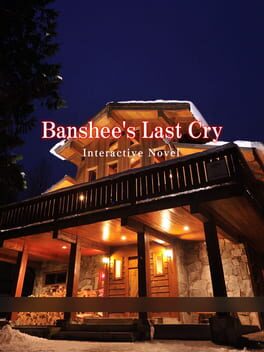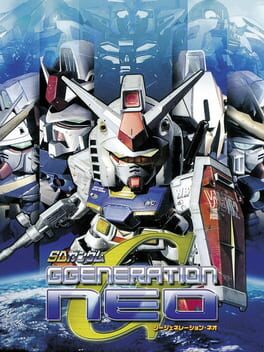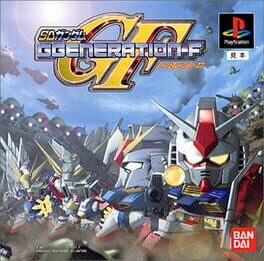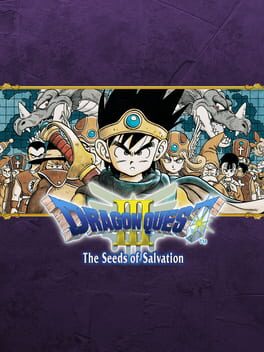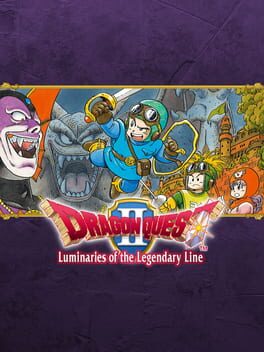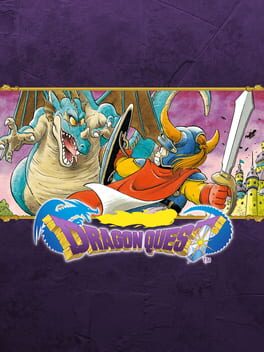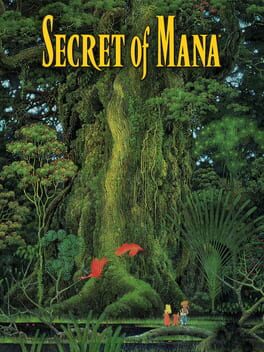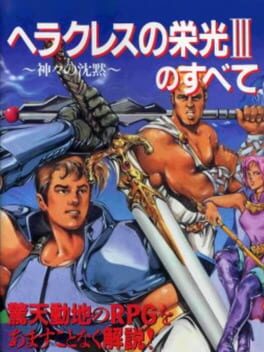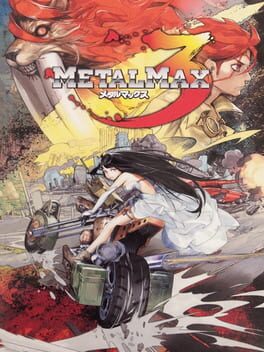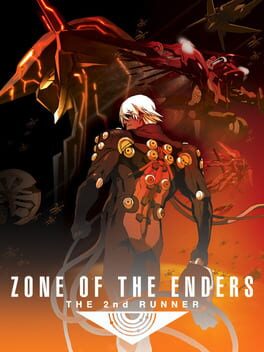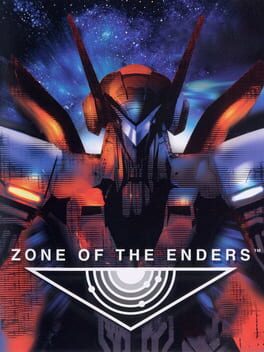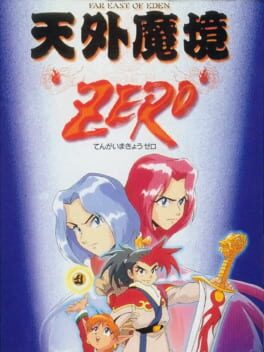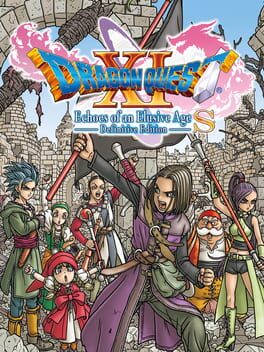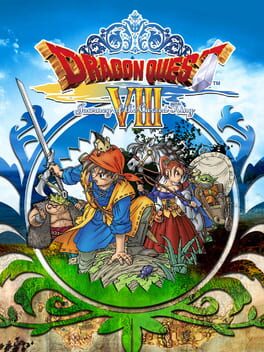2014
Kamaitachi no Yoru(1994) and its predecessor Otogirisō(1992) are classic novel games.
After playing these two games, a young man created a game that would revolutionise otaku culture.
That game was To Heart(Shizuku & Kizuato).
After playing To Heart, many young people thought "I want to make a game like this too!". This is how novel games have flourished since the 2000s.
Among the young men were Kinoko Nasu, known for "Tsukihime" and "Fate", and Gen Urobuchi, known for "Phantom of Inferno" and "Madoka Magica".
If there is an origin to Japanese novel games, it is definitely these two(Kamaitachi no Yoru and Otogirisō).
...The explanation is long.
The main scenario is quite a real mystery, as it is written by a professional mystery writer.
However, this is a multi-scenario game, so when the main scenario ends, a completely different world scenario begins in the same place.
I think the best part of this game is this strangeness.
A strange novel game with the occult, laughter and a little bit of sex.
The sequel, 2, is also interesting (although some of the core fans hate it).
I didn't like the third one.
When it comes to remakes, it's out of the question. (That plain silhouette would have been better! Just a pretty girl character doesn't leave any room for imagination!)
It's an unfortunate situation that the only translated version is for iOS.
After playing these two games, a young man created a game that would revolutionise otaku culture.
That game was To Heart(Shizuku & Kizuato).
After playing To Heart, many young people thought "I want to make a game like this too!". This is how novel games have flourished since the 2000s.
Among the young men were Kinoko Nasu, known for "Tsukihime" and "Fate", and Gen Urobuchi, known for "Phantom of Inferno" and "Madoka Magica".
If there is an origin to Japanese novel games, it is definitely these two(Kamaitachi no Yoru and Otogirisō).
...The explanation is long.
The main scenario is quite a real mystery, as it is written by a professional mystery writer.
However, this is a multi-scenario game, so when the main scenario ends, a completely different world scenario begins in the same place.
I think the best part of this game is this strangeness.
A strange novel game with the occult, laughter and a little bit of sex.
The sequel, 2, is also interesting (although some of the core fans hate it).
I didn't like the third one.
When it comes to remakes, it's out of the question. (That plain silhouette would have been better! Just a pretty girl character doesn't leave any room for imagination!)
It's an unfortunate situation that the only translated version is for iOS.
This review contains spoilers
It is one of the perfects in the series. (It's even better on the SNES version)
Many people still ask "What is the best DraQue game ever?" many people would say this *3.
Regardless of the quality of the game, or whether you like it or not, I also have the strongest image of 3 when I say "DraQue". Maybe that's why the BGM for the last battle of 11 is that song, because 3 was so symbolic.
In fact, after 3* was released, Yuji Horii wondered what kind of DQ he should make in the future.
Many people still ask "What is the best DraQue game ever?" many people would say this *3.
Regardless of the quality of the game, or whether you like it or not, I also have the strongest image of 3 when I say "DraQue". Maybe that's why the BGM for the last battle of 11 is that song, because 3 was so symbolic.
In fact, after 3* was released, Yuji Horii wondered what kind of DQ he should make in the future.
2004
A great work. It can be described as the template or foundation of the series.
A clear article explaining the history of this game before it was created. (It is in Japanese.)
https://news.denfaminicogamer.jp/column03/game-gatari01
Of course, it's not "particularly" interesting to play now. But it's a great game. (So I hesitate to give it a star/rating.) Without this game, the MOTHER series and the Pocket Monsters series would never have been born.
The majority of NES games at the time of release usually had no consideration for the player.
It was needlessly difficult, mean-spirited and had no intention of entertaining the player. That was the normal game at the time. It was a time when normal was not normal. (The exception was The Legend of Zelda?)
Yuji Horii may not be appreciated outside Japan, but he's probably as great as Shigeru Miyamoto.
When it comes to difficulty, the feeling of playing, and making adjustments that are very difficult to put into words, there is no one like him. One word: genius.
A clear article explaining the history of this game before it was created. (It is in Japanese.)
https://news.denfaminicogamer.jp/column03/game-gatari01
Of course, it's not "particularly" interesting to play now. But it's a great game. (So I hesitate to give it a star/rating.) Without this game, the MOTHER series and the Pocket Monsters series would never have been born.
The majority of NES games at the time of release usually had no consideration for the player.
It was needlessly difficult, mean-spirited and had no intention of entertaining the player. That was the normal game at the time. It was a time when normal was not normal. (The exception was The Legend of Zelda?)
Yuji Horii may not be appreciated outside Japan, but he's probably as great as Shigeru Miyamoto.
When it comes to difficulty, the feeling of playing, and making adjustments that are very difficult to put into words, there is no one like him. One word: genius.
1993
This game & Xenogears might be the reason why I don't play FF much.(Incidentally, one of the messages in the Xenogears TV commercial was "Why there will never be a sequel to Seiken Densetsu/Mana Series".)
I think I bought it for 1,000 yen at the time when it was thrown out due to a fatal bug. As a result, I hit the jackpot.
I still listen to the music, especially "Danger". Hiroki Kikuta was a genius at that time. He might have been better than Uematsu.
Oh, and bug or not, I don't think the remake is worth buying.
But I like 3 better.
I think I bought it for 1,000 yen at the time when it was thrown out due to a fatal bug. As a result, I hit the jackpot.
I still listen to the music, especially "Danger". Hiroki Kikuta was a genius at that time. He might have been better than Uematsu.
Oh, and bug or not, I don't think the remake is worth buying.
But I like 3 better.
The script is written by Kazushige Nojima, the scenario writer of FF7.
He wrote the script for this classic RPG five years before FF7.
The game itself is rough around the edges, but the story is highly regarded anyway. Most people who have played this game will agree that it surpasses FF7 in terms of scenario.
But I like 4 better.
He wrote the script for this classic RPG five years before FF7.
The game itself is rough around the edges, but the story is highly regarded anyway. Most people who have played this game will agree that it surpasses FF7 in terms of scenario.
But I like 4 better.
2018
I think it's a very good game.
I've played it for nearly 200 hours now.
The combat is fun, the music is cool and the characters are good. But the story is not so good.
It's a fun game, but it's not deep.
I can't help thinking of "The Glory of Hercules 3 & 4" when I think of games based on Greek mythology.
Games are not all about the story, but you want to play a game with an epic story using the best material (Greek mythology).
I've played it for nearly 200 hours now.
The combat is fun, the music is cool and the characters are good. But the story is not so good.
It's a fun game, but it's not deep.
I can't help thinking of "The Glory of Hercules 3 & 4" when I think of games based on Greek mythology.
Games are not all about the story, but you want to play a game with an epic story using the best material (Greek mythology).
2010
If I had to describe this work, I would say that it is a "high-speed roller coaster” using robots.
Including its predecessor, ZOE, the PlayStation2 game hardware was "underutilized" by almost all game makers in Japan and abroad.
However, this game made the most of the PS2's specifications and reached the pinnacle of game expression and playability at the time.
Since then, I believe that action games with robots reached their peak with ANUBIS, and the evolution stopped there.
Including its predecessor, ZOE, the PlayStation2 game hardware was "underutilized" by almost all game makers in Japan and abroad.
However, this game made the most of the PS2's specifications and reached the pinnacle of game expression and playability at the time.
Since then, I believe that action games with robots reached their peak with ANUBIS, and the evolution stopped there.
2001
Mobile Suit Gundam is one of Japan's most famous robot anime. This "Zone of the Enders" a.k.a. ZOE is an update of that Gundam, or an attempt to become a new Gundam, and failed spectacularly. As proof of this, the plot of this movie is almost the same as the first Gundam (fans call it the 1st or 1st Gundam).
The biggest difference between this and Gundam is the involvement of artificial AI.
ADA is a very good character. I don't know of any other character whose voice alone can excite me so much.
The ADA is like the Rei of 'Blue Comet SPT Layzner'. In other words, It was ostensibly intended to be a Gundam, but inside it was a 'Blue Comet SPT Layzner'.
It's a good anime, and I like it, Layzner. But it's a bit plain.
The biggest difference between this and Gundam is the involvement of artificial AI.
ADA is a very good character. I don't know of any other character whose voice alone can excite me so much.
The ADA is like the Rei of 'Blue Comet SPT Layzner'. In other words, It was ostensibly intended to be a Gundam, but inside it was a 'Blue Comet SPT Layzner'.
It's a good anime, and I like it, Layzner. But it's a bit plain.
1995
This is the Tengai Makyo for me.
I'm not sure if this is the best Tengai Makyoukai for me, but it's the only one I've ever played.
So I'm going to ignore all the history and reviews from the previous games, so please understand that.
It's an RPG with a friendly design even now, and the music and sound effects are so elaborate that it's incomparable to Dragon Quest and Final Fantasy of the same period.
There are battles between giant robots (though they are clay figurines, lol), so it's more flashy than DQ or FF.
The best part is that each village and city has its own famous products and 出合茶屋(deai chaya. A teahouse that existed in the Edo period for men and women to meet in secret.), so it's very well crafted.
Now that I think about it, I wonder how the SNES judging process worked?
It's an old game, but I highly recommend it.
I'm not sure if this is the best Tengai Makyoukai for me, but it's the only one I've ever played.
So I'm going to ignore all the history and reviews from the previous games, so please understand that.
It's an RPG with a friendly design even now, and the music and sound effects are so elaborate that it's incomparable to Dragon Quest and Final Fantasy of the same period.
There are battles between giant robots (though they are clay figurines, lol), so it's more flashy than DQ or FF.
The best part is that each village and city has its own famous products and 出合茶屋(deai chaya. A teahouse that existed in the Edo period for men and women to meet in secret.), so it's very well crafted.
Now that I think about it, I wonder how the SNES judging process worked?
It's an old game, but I highly recommend it.
Dragon Quest is the rice.
For the Japanese, eating rice is just a part of everyday life, nothing special about it.
It's not the rice itself that people complain about, it's the way it's cooked, the amount of water used.
It is not a complaint about the rice itself. I think that's what playing DraQue is all about.
You can make one comment about the quality of Koshihikari or Akita Komachi every year - "it's good", "it's very good", "it's not so good this year" - but no Japanese person will go into detail about the quality of the rice.
(Do Americans mention the taste of pizza or Coke in detail every year? The same applies to vodka for Russians. A Frenchman might give a lengthy evaluation of a cheese or a wine. I don't know about the English. Oh, I forgot. There was tea.)
In other words, it has become such a traditional and standard game series that it is difficult to critique and observe.
So it's very difficult, but I wanted to think a little bit deeper about this "11".
I don't like meaningless sentimentality. I don't like to spend a lot of time in nostalgia, I think I should be doing something else.
This 11 is littered with symbols from previous games.
The characters reminded me most of 4.
The events are too many to observe: I was surprised to find a fighting tournament from 3, and a quote from the Gaiden manga (Emblem of Roto, it's a classic manga).
The choice of background music had so many winks to the players of yesteryear that it was even annoying.
But I didn't feel the "sentimentality" that I hate. Strangely enough.
Maybe it's because I felt that Yuji Horii, the creator of this game, wanted to say goodbye and thank you to all the people who have played DraQue so far.
I think it's safe to say that with "11", DraQue has come to an end.
It seems that they are going to make "12", but it will be completely different from the previous games. (I'm predicting that 7 will be the closest).
Koichi Sugiyama san passed away at the end of September. Oh... 11 is truly the last Dragon Quest...
May he rest in peace.
Your music is eternal.
For the Japanese, eating rice is just a part of everyday life, nothing special about it.
It's not the rice itself that people complain about, it's the way it's cooked, the amount of water used.
It is not a complaint about the rice itself. I think that's what playing DraQue is all about.
You can make one comment about the quality of Koshihikari or Akita Komachi every year - "it's good", "it's very good", "it's not so good this year" - but no Japanese person will go into detail about the quality of the rice.
(Do Americans mention the taste of pizza or Coke in detail every year? The same applies to vodka for Russians. A Frenchman might give a lengthy evaluation of a cheese or a wine. I don't know about the English. Oh, I forgot. There was tea.)
In other words, it has become such a traditional and standard game series that it is difficult to critique and observe.
So it's very difficult, but I wanted to think a little bit deeper about this "11".
I don't like meaningless sentimentality. I don't like to spend a lot of time in nostalgia, I think I should be doing something else.
This 11 is littered with symbols from previous games.
The characters reminded me most of 4.
The events are too many to observe: I was surprised to find a fighting tournament from 3, and a quote from the Gaiden manga (Emblem of Roto, it's a classic manga).
The choice of background music had so many winks to the players of yesteryear that it was even annoying.
But I didn't feel the "sentimentality" that I hate. Strangely enough.
Maybe it's because I felt that Yuji Horii, the creator of this game, wanted to say goodbye and thank you to all the people who have played DraQue so far.
I think it's safe to say that with "11", DraQue has come to an end.
It seems that they are going to make "12", but it will be completely different from the previous games. (I'm predicting that 7 will be the closest).
Koichi Sugiyama san passed away at the end of September. Oh... 11 is truly the last Dragon Quest...
May he rest in peace.
Your music is eternal.
EDIT: This is about the Japanese version, not the NA/EU version of DQ8.
I threw it away in the middle, just like *7*.
There might have been a discrepancy between DVD, which is a large capacity disc media, and DraQue, which is sold for its lightness of operation, and the DraQue I wanted. As well as 7, Maybe I'll change my opinion if I play the 3DS version.
But, I'll never touch 9 and 10.
I threw it away in the middle, just like *7*.
There might have been a discrepancy between DVD, which is a large capacity disc media, and DraQue, which is sold for its lightness of operation, and the DraQue I wanted. As well as 7, Maybe I'll change my opinion if I play the 3DS version.
But, I'll never touch 9 and 10.
